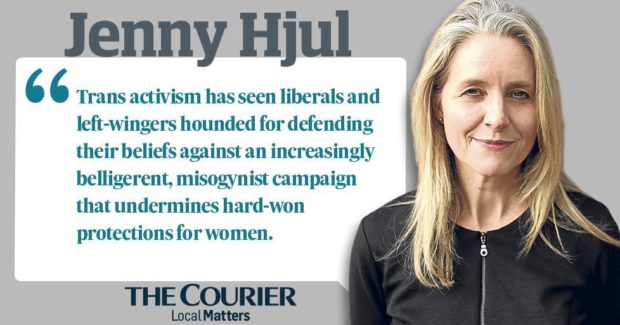The Scottish Greens reacted to the resignation by MSP Andy Wightman from their party with what sounded like an indifferent shrug.
They remained committed to carrying on his agenda without him, they said, and wished him well ‘in whatever he decides to do next’.
Wightman, elected in 2016, has not revealed his future plans yet but it is to be hoped they will keep him at the forefront of Scotland’s political firmament, where his contribution has always been respected despite, not because, of his party affiliations.
In fact, his split with his political home of more than a decade, announced last week, is likely to be more damaging to the Green Party than to Wightman who, by a long stretch, is its most effective representative north of the border. His reason for quitting, just a few months before the Holyrood elections in May, will surprise people who still see the Greens as a refuge for mostly middle-class progressive environmentalists who don’t much like any of the other parties.
Wightman, list MSP for the Lothians region, parted company with the Greens because their stance on transgender issues was at odds with his own opinions on women’s rights.
But, more specifically, it was the intransigence of the party hierarchy and its refusal to countenance any debate on what is a hugely controversial subject that pushed him to the point of no return.
“Some of the language, approaches and postures of the party and its spokespeople have been provocative, alienating and confrontational for many women and men,” he said in his resignation letter.
“It has become evident to me that the sort of open-minded public engagement I would like to see take place on this topic is incompatible with a party that has become very censorious of any deviation from an agreed line.”
‘Damning words indeed’
These are damning words indeed for a political culture that, while regarded as a waste of a vote by most of the electorate, has had eclectic appeal over the years via CND, Greenham Common and feminism.
One of the more successful Greens, Jason Kitkat, who was elected leader of Brighton Council in 2011, described the party as ‘a broad church’ with a ‘wide variety of views’.
“It’s not like the old militant days of Labour past,” he told the BBC in 2014. “We are united around Green values but we come at it from different perspectives.”
The Greens in Scotland are, of course, a very different beast and under Patrick Harvie, co-leader since 2008, they have become little more than an appendage to the Scottish Nationalists, but with even less accountability.
Many voters who sympathise with traditional Green politics must now be looking for more accommodating political berths elsewhere, aghast, like Wightman, at the nutty radicalism preached by zealots such as Harvie.
Wightman’s tipping point
The tipping point for Wightman came when he had to vote against an amendment to the Forensic Medical Services (Victims of Sexual Offences) (Scotland) Bill, after being threatened with expulsion from the party. The amendment, which was passed, will give sexual assault victims the right to choose the sex, rather than just the gender, of the medic who examines them.
Wightman also got into trouble last year with his Green colleagues, merely for attending a public meeting focused on the impact of the SNP’s gender recognition reforms on women’s rights.
Trans activism has seen many principled liberals and left-wingers hounded for defending their beliefs against an increasingly belligerent, misogynist campaign that undermines hard-won protections for women.
Wightman now joins those other feminist pariahs JK Rowling, Julie Bindel and the SNP’s Joan McAlpine, who speak for the silent majority, male or female, bewildered over trans gender extremism.
A conviction politician
As an independent MSP, he will most likely continue to pursue his core passions of land reform and local democracy that had their natural habitat in the Green Party of old.
I know Wightman and while I don’t share many of his Green Party sympathies, particularly on Scottish independence, I have no doubt that he is a conviction politician motivated by moral as well as civic duty.
He may well decide to contest the Holyrood election on an independent Green platform, a move which would be welcomed by those, voters and pundits alike, who recognise his political talents and integrity.
Or he might find his place within another political grouping. Most parties have developed environmental policies that even a Green poster boy like Wightman could try to work with.
But whatever compromises that would entail, one thing is certain; he is not the loser in this political upset.
If the Scottish Green Party is no longer a suitable fit for a politician like Andy Wightman, whose Green credentials are beyond doubt, that is not because he has failed as a Green but because they have ceased to be an authentic Green movement.











